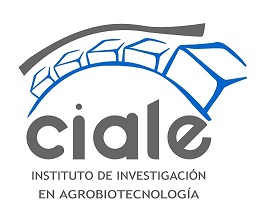
Agrobiotechnology Research Institute

- ACTIVITY: scientific and technological research.
- LOCATION: Villamayor Campus. Calle del Duero 12 (37185) Villamayor (Salamanca).
- CONSTITUTION DATE: 2000.
- CATEGORY: research Center.
- CONTACT: (+34) 923 294 790.

- DESCRIPTION: CIALE was born with the aim of grouping, supporting and promoting the research and training activities carried out at the University of Salamanca in the different areas of knowledge related to Agriculture and Agronomy.
- PRINCIPAL FUNCTIONS:
- R&D research within the fields of biodiversity, genetic improvement, plant production, plant health, water resources and others.
- Deepen your knowledge of agrobiotechnology and explore its applications.
- Creation of a link between agriculture and the environment.
- Improvement of techniques and training of technical personnel and university students
- FACILITIES: –
- STAFF: –
- BUDGET: –
- PROJECTS: –
- KNOWLEDGE TRANSFER: –
TECHNOLOGICAL SUPPLY/DEMAND: The center is organized into the following work areas:
- BIODIVERSITY:
- Genetic diversity of phytopathogenic microorganisms.
- Physiology in mutualistic interactions.
- Microbial ecology of the rhizosphere.
- Conservation of both mycological and vegetal Biodiversity
- VEGETABLE PRODUCTION:
- Molecular biology of seed dormancy and germination.
- Molecular biology of plant growth.
- Remodeling of the cell wall in vegetables.
- Molecular biology of mutualistic plant-microorganism interactions.
- Botanical characterization of honey and other bee products.
- PLANT HEALTH:
- Biological control of phytopathogenic fungi.
- Functional genomics, proteomics and transcriptomics of Trichoderma.
- Plant-molecular interactionTrichoderma.
- Biofertilization and biological control.
- Characterization of Trichoderma genotypes and their mechanisms of action.
- Characterization of entomopathogenic fungi.
- Application in biocontrol of protease inhibitors of plant origin.
- Molecular diagnosis of phytopathogenic microorganisms.
- Genetic analysis of plant-pathogen interactions in Fusarium and Botrytis.
- Genetic improvement of cultivated plants for disease resistance.
- Monitoring of pollen and spores of phytopathogens present in the atmosphere and the implication of both in clinical symptoms of allergies.
